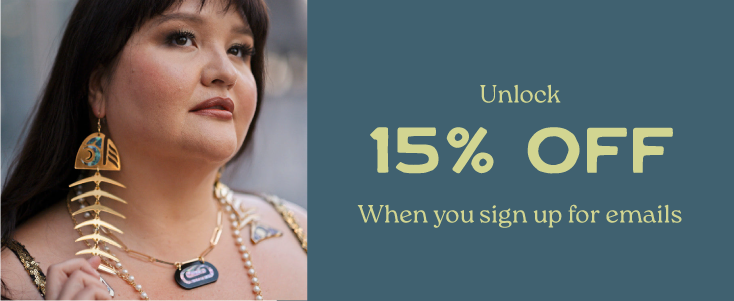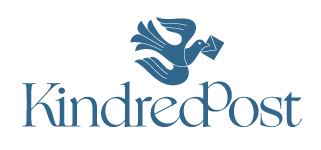Pin: tlél ax̱ tuwáa usghú (i donʼt want it / i donʼt like it)
Description
tlél ax̱ tuwáa usghú | i donʼt want it / i donʼt like it
This button is for fun, and to also acknowledge that we do not have to like or want everything that is around us. In Lingít Ḵusteeyí, keep in mind that it is rude to refuse food or gifts when in cultural ceremonies or visiting someoneʼs house. However, there are times when you can and should say that you donʼt want or donʼt like something. When it comes to colonialism, tlél ḵaa tuwáa ushgú (donʼt nobody want that)!
This 1" button pin is designed by X'unei Lance Twitchell and assembled by our team in-house as a part of our Lingít button pin collection. The collection is made with the intention of promoting the use of Lingít yoo x̱ʼatángi (Lingít language) and to share some concepts that exist within our language. Many of these phrases are ones that we love to use within a community of language users, learners, and teachers that are committed to changing the way things are going with Indigenous languages and place.
Lingít language is alive and in regular use on our community, and those who are on our lands as visitors or residents are invited and encouraged to use our language and end practices of genocide and exclusion. Also, we have fun and challenge ourselves to understand a complex and rich language that has been here since mammoths were walking around.
Also fun: The word for button, like on a blanket or shirt has several forms (ḵaayaka.óotʼi; ḵaayuka.óotʼi; yooka.óotʼ; yaka.óotʼ). All of these derive from the following compound noun ḵaa yaka.óotʼ which I Ḵaanáḵ Ruth Demmert translated as “human made octopus sucker.” Since these buttons have a needle/pin affixed to them, we are calling them át yawdig̱íji yooka.óotʼ (the human-made button that pierces).
Lance Twitchell, PhD, is of Tlingit, Haida, Yupʼik, and Sami heritage with the Tlingit names X̱ʼunei and Du Aaní Kawdinook, and the Haida name Ḵʼeijáakw. X̱ʼunei is an Associate Professor of Alaska Native Languages at the University of Alaska Southeast and is a multimedia artist who works in Northwest Coast Design, poetry, screenwriting, audio, film, and photography. His studies are in creating safe language acquisition spaces and achieving revitalization through counter-hegemonic transformation, which means a rejection of external definitions and fragmentation and a promotion of the thought world of the ancestors of language movements.
small: 1"
large: 1.5"
Shipping
Need it by December 25th? Please place your order by December 15th and choose Priority Mail. After December 15th, please choose Express Mail! Thank you!
Order Fulfillment & Shipping
We handle each order with care! And we are a very small team of just a few real life humans, so it generally takes us 1-4 days to fulfill (pack up and ship out) orders. If your order is urgent (e.g. you're hoping it gets fulfilled and gift wrapped in time for your dinner party tonight, just give us a call at 907-523-5053! Part of the beauty of being a small business is all of this is made up! Lol. Just communicate with us; we will always do our best).
After we pack up your order, we send it via the shipping method you choose at checkout. In general here are time estimates:
Free Local Pickup: these are often ready on the same day, but could take up to a few days if we have high volume in the shop. Call us if you need it asap and we can do that!
First Class: 4-8 Business Days
USPS Retail Ground: 4-8 Business Days if under 13oz, but if it's heavier than that then it goes on a boat and it can take 3-4 weeks to arrive to a destination in the lower 48.
Priority Mail: 3-5 Business Days. We love Priority Mail; it goes on an airplane and arrives to you within a week, generally.
Express Mail: 2 days!
***We cannot be used as a General Delivery pick-up location***
*** We are bonafide shipping nerds, so if you have a question about shipping estimates or times, just call or text us at 907-523-5053 and we can assist you before placing your order! ***
Returns and Exchanges
We want you to be happy with your goods! And, we're a small business, so returns and exchanges can be costly for us. Here's how we currently roll:
1 - We know shopping online is tricky but we are here to help! Please feel free to reach out if you have any questions we can answer before you make your purchase, so that we can try to help bridge the gap between online and real life the best that we can! We are available via the chat function, or feel free to call/text/(even facetime us!) at 907-523-5053. We're happy to get you more images or video to help you with your choices!
2 - If there is a problem with your order or you receive an item that was damaged in transit, please contact us so that we can make it right! You can email us at hello@kindredpost.com or call us at 907-523-5053 and we will facilitate a replacement or a refund, and we will cover associated shipping costs.
3 - We accept returns and exchanges within 30 days, as long as the item is still in new, unused condition, with undamaged packaging (basically, can we put it back in our collection?). (We extend the return window to January 15th for all orders placed online between November-December). We don't cover the shipping for these ones, sorry! Please reach out to us so we can help coordinate your return/exchange. hello@kindredpost.com or call us at 907-523-5053.
We are a small team and we are growing and learning about e-commerce; we appreciate your grace and patience when we make mistakes. 🙏🏽



